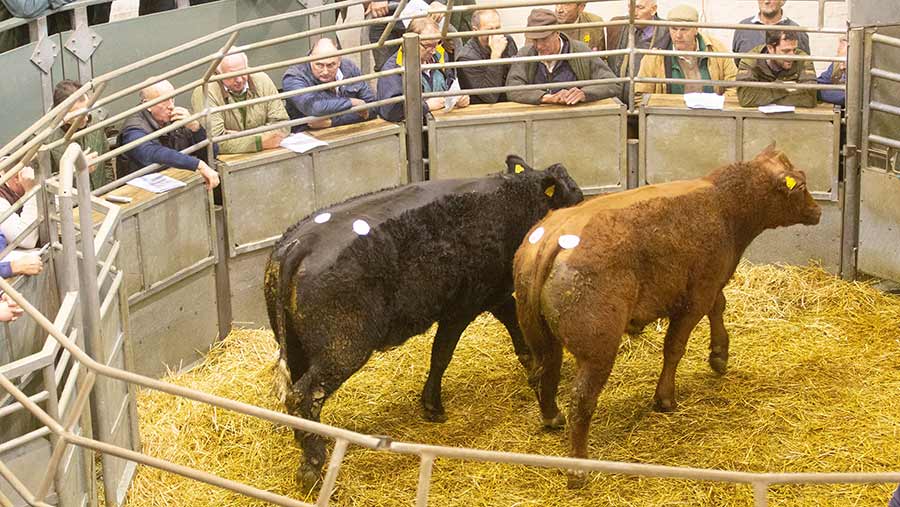Livestock auctioneers warn of risks of private sales
 © Tim Scrivener
© Tim Scrivener Private sales of livestock can leave farmers exposed to unfair pricing and payment dodgers, according to the Institute of Auctioneers and Appraisers in Scotland (IAAS).
Private selling is on the rise, with online marketplaces and apps proving tempting to livestock producers because it can be time-saving and cheaper than paying commission at a mart.
But the IAAS has warned that these are a “poor substitute” for the live auction ring because they don’t come with the same guarantees.
See also: Best practice when trading stock remotely
It points out that auction marts are heavily governed by Trading Standards, which means stock is always weighed, and unhealthy animals are identified and filtered out of the ring
Marts also chase late payments to ensure the seller is paid, whereas private sales come with no such guarantee.
“Not only do marts help ensure a fair price, they guarantee the seller is paid,” says Neil Wilson, executive director at IAAS.
“Auctioneers chase money seven days a week, so a commission – perhaps £30 to £40 for a £1,000 beast – can be the best insurance a seller takes out.”
Jim Craig, managing director of Craig Wilson Auction Mart, Ayr, said the process of collective bidding around a ring also helped to ensure a fair price for buyers and sellers, with different-quality beasts being openly sorted by the farmers as they bid.
“With a private sale, however, the price is inevitably based on the going market rate – that being prices established at live marts – which takes in all shapes and sizes of livestock.”
